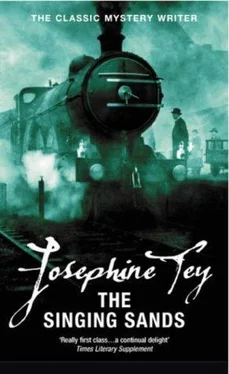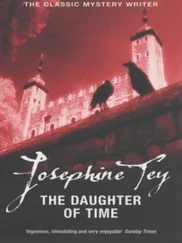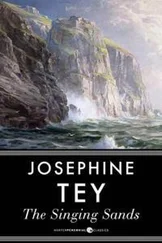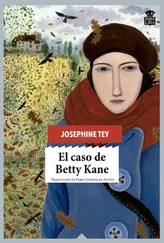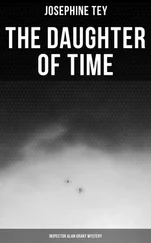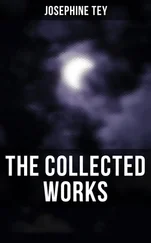‘Did you know Laura well at school?’
‘Not bosom-friend well. I was terribly in awe of her, you see.’
‘In awe? Of Laura?’
‘Yes. She was very clever, you know, and good at everything, and I never could add two and two.’
Since part of his delight in her was the contrast between her Hans Andersen-illustration quality and her practicality, he deduced that this was an exaggeration. But it was probably true that she had no—no branches to her, so to speak. No multitude of leaves to breathe the air of the world. The climate of her mind was uncritical. Her utterance had none of Laura’s glancing comment; none of Laura’s swift interest and dissection.
‘We are very lucky, you and Laura and I, to have known the Highlands when we were children,’ she said, when they were talking of early fishing experiences. ‘That is what I should wish most for a child. To have a beautiful calf-country. When David—my husband—was killed they wanted me to sell Kentallen. We had never had much money, and the Death Duties took the margin that made the place workable. But I wanted to hang on to it at least until Nigel and Timmy and Charles are grown-up. They will hate losing it, but at least they will have had the years that matter in a beautiful country.’
He looked at her, putting her tackle neatly away in its box with the sober care of a tidy child, and thought that the solution of her problem was surely remarriage. The West End that he knew so well was lousy with sleek men in shiny cars who could keep Kentallen with no more effort than they would keep a Japanese garden in one of the rooms that they called lounges. The difficulty was, he supposed, that in Zoë Kentallen’s world money was neither an introduction nor an absolution.
The spring sunlight faded. The skies grew luminous. The hills went far away and lay down, as Laura had once said as a child; describing in eight easy words the whole look and atmosphere of an evening of settled weather when tomorrow is going to be a wonderful day.
‘We ought to be getting back,’ Zoë said.
As he picked up their fishing things from the bank he thought that there had been more magic in this one afternoon on the Turlie than in all the much advertised Islands of the West.
‘You love your work, don’t you?’ she said as they walked up the hill to Clune. ‘Laura told me that you could have retired years ago if you had wanted to.’
‘Yes,’ he said, a little surprised. ‘I suppose that I could have retired. My mother’s sister left me a legacy. She married a man who did well in Australia and she had no children.’
‘What would you do if you retired?’
‘I don’t know. I have never even considered it.’
But that night, going to sleep, he did consider it. Not as a prospect, but with speculation. What would it be like to retire? To retire while he was still young enough to begin something else? If he began something else what would it be? A sheep-farm like Tommy’s? That would be a good life. But could he make a success of an entirely country existence? He doubted it. And if not, then what else could he do?
He played with this nice new toy until he fell asleep and he took it to the river with him next morning. One of the really charming facets of the game was the thought of Bryce’s face when he read his resignation. Bryce would not merely be short of staff for a week or two; he would find himself deprived for good and all of his most valued subordinate. It was a delicious thought.
He fished his favourite pool, below the swing bridge, and conducted delightful conversations with Bryce. Because of course there would be a conversation. He would give himself the ineffable delight of laying that written resignation on the desk in front of Bryce’s nose; laying it there himself, in person. Then there would be some really satisfying chat, and he would walk out into the street a free man.
Free to do what?
To be himself, at the beck and call of nobody.
To do things he had always wanted to do and had had no time for. To mess about in small boats, for instance.
To get married, perhaps.
Yes, to get married. With leisure there would be time to share his life. Time to love and be loved.
This lasted him very happily for another hour.
About noon he became aware that he was not alone. He looked up and saw that a man was standing on the bridge watching him. He was standing only a few yards from the bank, and since the bridge was motionless he must have been there for some time. The bridge was the usual trough of wire floored with wooden slats, a structure so light that even the wind was capable of moving it. He was grateful to the stranger for not walking into the middle of the thing and swaying about there so that he distracted every fish in the neighbourhood.
He nodded to the man by way of expressing his approval.
‘Your name Grant?’ asked the man.
After the circumlocutions of a people so devious-minded that they had no word for No, it was pleasant to be asked a straight question in simple English.
‘Yes,’ he said, and wondered a little. The man sounded as if he might be an American.
‘You the guy who put that advertisement in the paper?’
There was no doubt about the nationality this time.
‘Yes.’
The man tipped his hat further back on his head and said in a resigned way: ‘Oh, well. I’m crazy too, I guess, or I wouldn’t be here.’
Grant began to reel in.
‘Won’t you come down, Mr—?’
The man moved off the bridge and came down the bank to him.
He was youngish, well-dressed, and pleasant-looking.
‘My name is Cullen,’ he said. ‘Tad Cullen. I’m a flyer. I fly freight for OCAL. You know: Oriental Commercial Airlines Ltd.’
It was said that all you needed to fly for OCAL was a certificate and no sign of leprosy. But that was an exaggeration. Indeed, it was a perversion. You had to be good to fly for OCAL. In the big shiny passenger lines, if you made a mistake you were on the carpet. In OCAL, if you made a mistake you were out on your ear. OCAL had an unlimited supply of personnel to draw upon. OCAL cared nothing for your grammar, your colour, your antecedents, your manners, your nationality, or your looks, as long as you could fly. You had to be able to fly. Grant looked at Mr Cullen with a double interest.
‘Look, Mr Grant, I know that that thing, those words in the paper, I know they were just some kind of quotation that you wanted identified, or something like that. And of course I can’t identify them. I was never any good at books. I haven’t come here to be any use to you. Quite the opposite, I guess. But I’ve been very worried, and I thought even a long shot like this might be worth trying. You see, Bill used words like that one night when he was a bit high—Bill’s my buddy—and I thought, maybe, it might be a place. I mean the description might be a place. Even if it is a quotation. I’m afraid I’m not making myself very clear.’
Grant smiled a little and said No, not so far, but suppose they both sat down and straightened it out. ‘Am I to understand that you have come here looking for me?’
‘Yes, I actually came last night. But the post-office place was shut, so I got a bed at the inn. Moymore, they call it. And then I went to the post-office this morning and asked them where I could find the A. Grant who had a lot of letters. I was sure you’d have had a lot, you see, after that advertisement. And they said Oh, yes, if it was Mr Grant I wanted I would find him on the river somewhere. Well, I came down to look and the only other person on the river was a lady, so I guessed you must be it. You see it wasn’t any good writing to you because I really hadn’t anything that seemed worth putting on paper. I mean, it was just a daffy kind of hope. And you mightn’t have bothered answering it anyway—when it had nothing to do with you, I mean.’ He paused a moment, and added in a half-hopeful half-hoping-for-nothing tone: ‘It isn’t a night-club, is it?’
Читать дальше
